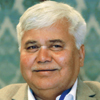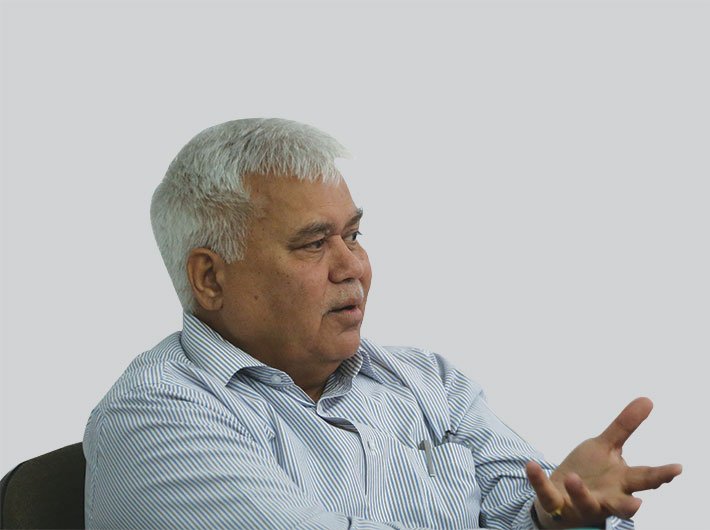TRAI chief RS Sharma, who was the director general of UIDAI at its inception, sits down with Governance Now journalists to talk about how the ambitious project was conceived. He also dispels the misconceptions surrounding it
We started in July 2009 with two overarching contexts.
The first context was identification. Many people did not have any identification document. Of course, there are many ID documents in India, but there was no single universal document, and even after adding up the existing ones there was no universal coverage. For example, the voter ID card is meant only for those above 18 years of age. Only about 3 crore people had passports, and only a couple of crores had PAN cards.
Let me share an anecdote. Someone died in Hamirpur village, and his widow was eligible for financial help under a UP government scheme. She applied and got a cheque of Rs 25,000. But she did not have bank account, and she could not open one, since she did not have any ID document. There was no way for her to encash the cheque. Eventually, the village pradhan got an NREGA card made in her name, which helped her open a bank account.
Critics argue about the plethora of ID cards, but for the poor in faraway places, it is a circular problem: if I have two ID documents I can easily get a third, but what if I don’t have any at all?
The second context was plugging subsidy wastage. Earlier, government welfare schemes targeted communities but for the past 20-30 years they are aimed at individuals. This has led to a lot of leakages and also ghost beneficiaries.
Responding to criticism
Civil society has been criticising Aadhaar on many grounds for years. Initially, we at the Unique Identification Authority of India (UIDAI) started an outreach programme and sought to answer activists’ claims.
For example, they see Aadhaar as violation of privacy since it collects biometrics. We clarified that since ‘uniqueness’ was the key factor, nothing other than biometrics could have done the job. Voice is not unique. Even fingerprints give you only about 95 percent accuracy; so we decided to include iris scan.
They had reservations. They feared technology will lead to exclusion. What if biometric confirmation fails? A beneficiary will be denied the benefits. As for exclusion, we promised that the service delivery organisation will have to ensure that nobody was left out due to technical glitches.
Also, their argument was: if some people want to remain ‘under the radar’ for whatever reasons, why are you dragging them out?
Then, they also spoke about data security and privacy. A couple of months ago, there were reports of Aadhaar numbers of NREGA beneficiaries published on some government websites. My clarification is that there is no data leak. Aadhaar is not a private number. In any case, the RTI Act calls for making public the list of beneficiaries of various schemes. Indeed, bank account numbers of NREGA workers had also been posted on a government website earlier, and nobody had objected back then.
Critics also say biometrics can be misused. What if my fingerprints and iris scans are stored on a device while confirming my identity and then this agent uses the same for some crime?
But then there is no way crimes can be prevented and there is no lock which is 100 percent foolproof. We have to learn to live in the digital world. Aadhaar is part of this digital world.
Privacy
Still, back in May 2010, Nandan Nilekani [who headed UIDAI then] had written to the prime minister that a privacy law was needed. We have given a synopsis of privacy laws from eight or ten countries.
Even in the absence of a privacy law, we have factored in ‘privacy by design’ – a concept pioneered by a team of officials from Ontario, Canada. The key principle here is that any digital project should embed privacy in itself.
Thus, we for example decided to collect minimum information – just necessary and sufficient information to establish identity. There was a strong suggestion to include the place of birth. We said no. Thus, Aadhaar registration needs only four kinds of information: name, age, gender and the communication address.
Secondly, for privacy by design, we decided to keep all information encrypted all the time. We have used the most secure encryption. That is why there has been no complaint of a single enrollment data getting leaked.
Also, Aadhaar was made a completely random number for sake of privacy. Unlike the vehicle registration number or postal area PIN code, nothing can be guessed about the Aadhaar holder from his or her number. Also, from that number, a family member’s number cannot be guessed either.
People around the world tell us that this is the best digital identification system in the world. We have leapfrogged from no identity to digital identity, at such a mammoth scale.
Benefits
If we consider the benefits of Aadhaar, more than Rs 20,000 crore has been saved in the LPG subsidy alone. And the total cost of Aadhaar is under Rs 10,000 crore.
In recent years, there is a controversy about Aadhaar becoming mandatory for some or the other government scheme or service. We had conceived Aadhaar as voluntary, but there is nothing wrong if a service delivering agency wants to make sure that the beneficiary is genuine. Shouldn’t I make sure that this beneficiary actually exists and he has not availed this benefit before? Unlike before, now you can’t ‘game’ the system depending on benefits – like claiming a lower age for an insurance scheme but a higher one for a benefits meant for senior citizens!
The latest is that Aadhaar is mandatory for filing the income-tax return. I don’t see anything wrong in it. There were cases of assesses with two or four PAN cards. Aadhaar will make tax assessment more efficient.
[The transcript is not verbatim and has been edited for clarity.]
(The article appears in the July 16-31, 2017 issue of Governance Now)



